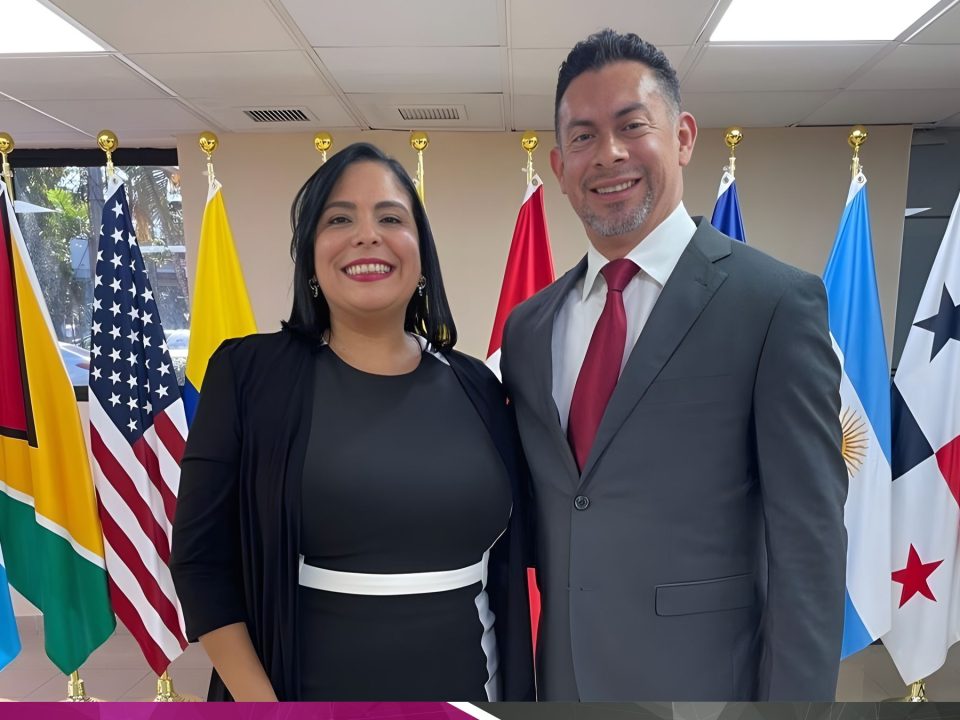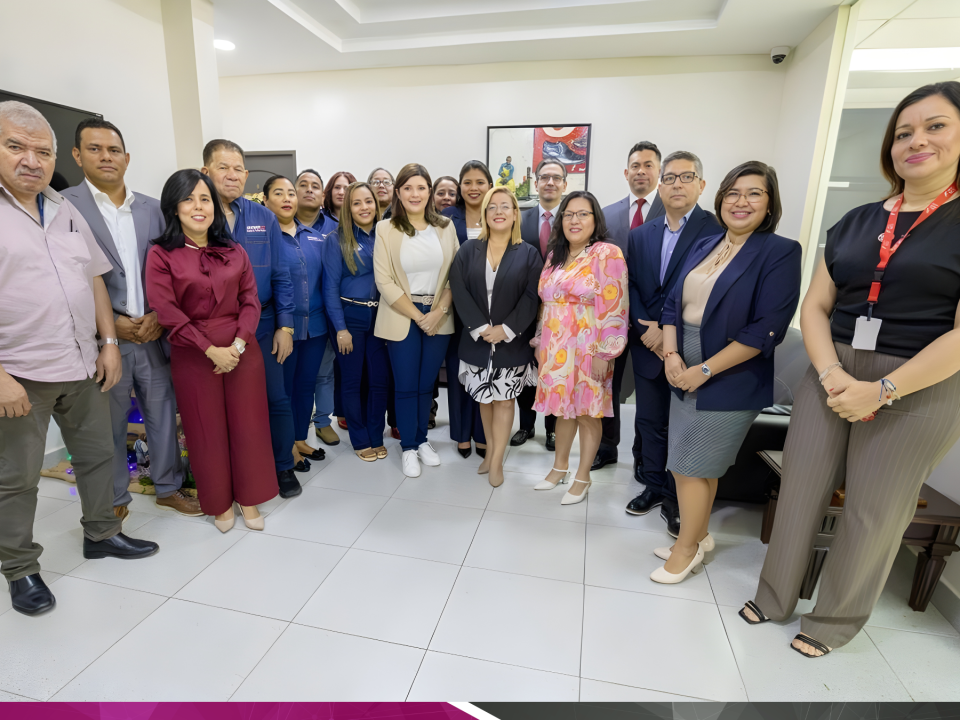
The Panama Canal Debate: Legal and Economic Implications of Renewed U.S. Interest
25/02/2025
Sponsors of Panama’s Arbitration & ADR Week
25/03/2025
By: Javier José Vallarino – Partner
When we speak of disability in the Republic of Panama, we refer to the situation in which a person suffers from a physical, motor, mental, intellectual and/or sensory impairment or disability, whether permanent or temporary in nature, which limits his or her ability to perform one or more essential activities of daily living, that is, in the manner or within the range considered standard for a human being.
Unfortunately, disability is also associated with the concept of discrimination, since persons with disabilities are often excluded or restricted from enjoying or exercising, under equal conditions, their most basic rights as persons, including the right to work.
Within this context, the Panamanian State has enacted (since the early nineties) a series of legal provisions, many of them scarcely publicized, which establish employer obligations, labor rights, tax incentives for both employers and employees and even labor privileges, all with the intention of minimizing labor discrimination based on disability and, simultaneously, promoting the labor market insertion of persons with disabilities.
Employer’s obligation to hire employees with disabilities
The Hiring of employees with disabilities constitutes an obligation for employers, as established by Article 44 of Law 42 of August 27th, 1999, “whereby equal opportunities for persons with disabilities are established”, amended by Article 51 of Law 15 of May 31st, 2016, which literally reads as follows:
ARTICLE 44: All private companies with twenty-five to fifty employees must have a minimum of one person with disability in their workforce. A company with more than fifty employees shall have in its workforce a proportion of not less than 2% of employees with disabilities.
These employees with disabilities, duly qualified to work, shall receive a salary equal to that of any other employee who performs the same task within the company. The Executive Branch may increase the proportion of employees with disabilities, according to the economic growth conditions of the country.
The Ministry of Labor and Labor Development shall ensure that this obligation is complied with and shall deal with the complaints and claims formulated for the contravention of this article.
The aforementioned provision obliges all employers with twenty-five (25) employees on their payroll to hire at least one (1) employee with disability; and those companies or employers with fifty (50) or more employees on their payroll must maintain employees with disabilities in a proportion of at least 2% of their personnel.
We understand that the inspectors of the Ministry of Labor and Labor Development, within the inventory of issues that they verify in each Inspection Diligence (hiring of foreigners, Internal Labor Regulations, Unemployment Fund, registration of labor contracts, among others), including the effective verification of compliance by employers regarding their obligation to hire employees with disabilities.
Sanction applicable to those who do not comply with the percentage of employees with disabilities
Article 45 of Law 42 of 1999, as amended by Article 53 of Law 15 of 2016, expressly provides that:
ARTICLE 45: Private companies which refuse to hire and/or maintain 2% of the personnel with disabilities, duly qualified to work, shall be under the obligation to contribute to the Ministry of Labor and Labor Development an amount equal to the minimum wage for each person not hired, during the entire time of their refusal.
The funds thus collected shall be deposited in a special account of the Ministry of Labor and Labor Development and shall be used exclusively to develop training workshops, labor training and self-management assistance, through the organizations related to disability issues. (Emphasis is ours)
The aforementioned provision is clear with respect to the economic sanction that should be applied to any employer who does not comply with the percentage of hiring employees with disabilities: i) to pay a sum of money equivalent to one minimum monthly salary (minimum salary applicable to the activity, size and location of the defaulting employer); ii) for each person with disabilities not hired; iii) during all the months of default.
However, we must clarify that the sanction that could be imposed by the Ministry of Labor and Labor Development (hereinafter MITRADEL), is subject to a formal procedure established in Executive Decree No. 333 dated December 5th, 2019.
Accordingly, Article 29 of Executive Decree No. 333, dated December 5th, 2019, expressly states that:
ARTICLE 29: The Ministry of Labor and Labor Development, through the Labor Inspection Directorate, together with the Equal Opportunity Directorate of the same entity, shall oversee that companies comply with the hiring of a person with a disability, in the case of companies with twenty-five to fifty employees.
Likewise, it shall ensure that those with more than fifty employees shall hire 2% of the workforce with disabilities.
In those cases in which the inspected company is found to be in non-compliance with the provisions of this article, it shall be summoned once to the offices of the Labor Inspection Directorate of the Ministry of Labor and Labor Development, where the content and scope of the provisions contained in this article shall be explained to them and a period not exceeding forty-five (45) calendar days shall be granted to them to comply with this provision. The company which refuses to hire and/or maintain within its workforce what is set forth in this article, shall be sanctioned economically and the sanction shall be equivalent to the minimum wage of each employee not hired for as long as the refusal lasts. (Emphasis and underlining are ours).
A simple analysis of the aforementioned provision allows us to conclude that the procedure to be followed by MITRADEL to sanction an employer who fails to comply with its obligation to hire employees with disabilities is as follows:
- To conduct an inspection proceeding to the employer to verify whether or not it complies with the provisions contained in Law 42 of August 27th, 1999.
- If as a result of the inspection, the MITRADEL inspecting officer concludes that the employer in question does not comply with the provisions contained in Law 42 of August 27th, 1999, he must then issue a summons to appear and be present at the Institution.
- The employer must appear before the Labor Inspection Directorate of the Ministry of Labor and Labor Development on the date and at the time established in the summons, in order for MITRADEL officers to explain the content, meaning and scope of Law 42 of August 27th, 1999.
- As of the date on which the Diligence proceeding was conducted at MITRADEL, this Institution must grant a period of no more than forty-five (45) calendar days for the employer to regularize and comply with its obligation to maintain a minimum of 2% of employees with disabilities on its payroll.
- Upon expiration of the aforementioned period of forty-five (45) days, MITRADEL must carry out a new inspection of the defaulting employer and, if the employer still maintains a position of non-compliance, then, and only then, shall the imposition of the fine set forth in Article 45 of Law 42 of August 27th, 1999, be imposed.
Paid leaves and legal privilege or protection against dismissal
Law 15 of May 31st, 2016, which amends Article 17 of Law 42 of August 27th, 1999, establishes, on the one hand, paid leave to be granted by the employer in cases of disability and, on the other hand, establishes a legal privilege or protection against dismissal also related to the issue of disability.
Regarding paid leaves, Article 19 of Law 15 of May 31st, 2016, provides that the employer is under the obligation to grant paid leave to employees with disabilities, and to employees who are fathers, mothers, relatives within the fourth degree of consanguinity and second degree of affinity, guardian or person authorized by the legal representative of the person with disabilities, to attend or to accompany them to medical appointments and required treatments.
These paid leaves that the employer is under the obligation to grant, would be up to one hundred and forty-four (144) hours per year.
The concept of “relatives within the fourth degree of consanguinity and second degree of affinity,” may include parents, children, siblings, grandparents, first cousins, aunts and uncles, spouse, father-in-law, brother-in-law, grandchildren, among others.
We also clarify that through Law 134 of December 31st, 2013, which establishes economic equality for persons with disabilities, it was established (see Article 9) that the benefit of paid leave established in Article 17 of Law 42 of August 27th, 1999, is extended to persons (employees) suffering from chronic, involutive and/or degenerative diseases.
In the matter of legal privilege or protection against dismissal, Article 54 of Law 15 of May 31st, 2016, provides that the employee with disabilities, or those employees who are fathers, mothers, guardian or the legal representative of the person with disabilities, may not be dismissed or replaced or demoted in their position or salary, except when the employer or superior proves in advance a cause established in the law justifying the termination of the labor relationship.
In simple terms, if the employee covered by “disability privilege” commits a misconduct which justifies his/her dismissal, the employer cannot proceed to dismiss him/her directly; but must first obtain a judicial authorization which is processed before the Labor Courts (it is a prior trial that can take more than a year).
If the employer does not comply with these prior judicial proceedings, and chooses to dismiss -with or without justified cause- an employee covered by the disability privilege, the affected employee could file a labor lawsuit for reinstatement for infringement of his/her privilege, and demand his/her immediate reinstatement to the job position with the consequent payment of back wages that would accrue as of the date of labor termination, and until the date on which the reinstatement of the employee becomes effective.
Benefits derived from hiring persons with disabilities
Article 14 of Law No. 1 of 1992, “whereby persons with hearing disabilities are protected, Articles 19 and 20 of Law 53 of November 30th, 1951, are amended and other measures are adopted”, expressly provides as follows:
ARTICLE 14: The Executive Branch, through the Ministry of Finances and Treasury, shall recognize to the employer who hires persons with disabilities, double the salary earned by the person with disabilities, up to a maximum of six (6) months in each tax period, as a deductible expense for the determination of the taxable income.
The General Directorate of Revenues of the Ministry of Finances and Treasury shall regulate this benefit.
In turn, Article 23 of Executive Decree No. 170 of October 27th, 1993, provides as follows:
ARTICLE 23:
The taxpayer may deduct twice the salary accrued by the employees with disabilities in its service, up to a maximum amount of six (6) months of salary of the employee with disabilities in each tax year. If the employee with disabilities renders services for less than six (6) months in the same tax year, the taxpayer may deduct as an expense the monthly salary actually earned by the employee, and an additional amount equivalent to such monthly salary.
In order to be entitled to this additional deduction, the taxpayer must comply with the requirements established in Executive Decree No. 88 of June 7th, 1993.
As can be deduced from the two (2) provisions mentioned above, the hiring of employees with disabilities implies, for the employer, the benefit (for income tax purposes) of a double deduction of the salaries earned by each employee with disabilities in its service, but only up to a maximum of six (6) months of salary in the additional part.
Within this context, it is important to mention that Executive Decree No. 88 of June 7, 1993, “whereby the benefit established in Article 14 of Law No. 1 of January 28th, 1992, in favor of employers that hire personnel with disabilities is regulated”, establishes the following requirements that the employer must comply with in order to be able to exercise this tax benefit in its favor, namely:
- At the time of hiring, the employer must request from the employee, or directly from the National Employment Directorate of the Ministry of Labor and Labor Development (or from the corresponding Department at MITRADEL), a certification stating that the hired employee is registered in the placement service register for persons with disabilities.
- This certification must be attached to the Income Tax Return for the tax period in question, in order to apply for the tax benefit.
On the other hand, it is important to note that Law 134 of December 31st, 2013, establishes a whole catalog of discounts (reduced price) in favor of persons with disabilities, which applies to recreation and entertainment activities, several medical services, restaurants, public transportation, medicines, internet services, among others.
Final Comments
As a final comment, we must point out that our country is in deficit in terms of formal and effective training for people with disabilities.
In fact, many companies or employers argue, with a certain and relative justification, that the hiring options for persons with disabilities – specifically the lists of candidates for hiring offered by the country’s authorities – are practically limited to cleaners, general assistants and alike, because these lists do not include candidates with sufficient academic and professional knowledge required to hold higher-level positions within the employer’s organizational structure; much less do they offer candidates who are bilingual.
This obviously limits the employer’s real possibilities of compliance with the hiring percentages of persons with disabilities required by Law 42 of August 27th, 1999, especially if we consider that many companies tend to outsource the cleaning and janitorial tasks in the workplace.
On the other hand, the regulations in force regarding persons with disabilities discourage compliance by employers since, on the one hand, while Law 42 of August 27th, 1999, requires the hiring of persons with disabilities, on the other hand, Law 15 of May 31st, 2016, states that these employees would be covered by legal privilege or protection against the direct action of dismissal that the employer intends to exercise (disability privilege).
In this regard, in our professional practice we have encountered a number of companies that have openly told us that they prefer to pay the fine for failing to comply with the obligation to hire employees with disabilities, compared to the option of hiring employees with disability privileges (especially if we understand that it is not a temporary but a permanent privilege), since they do not wish to hire, as they say, a “potential future problem”.
Ultimately, we believe that we still have a long way to go to close the gaps leading to discrimination on the basis of disability.








